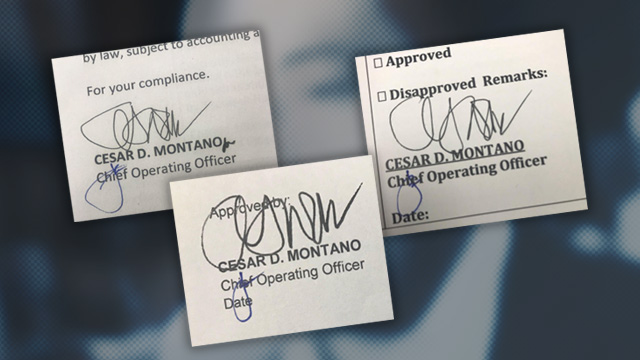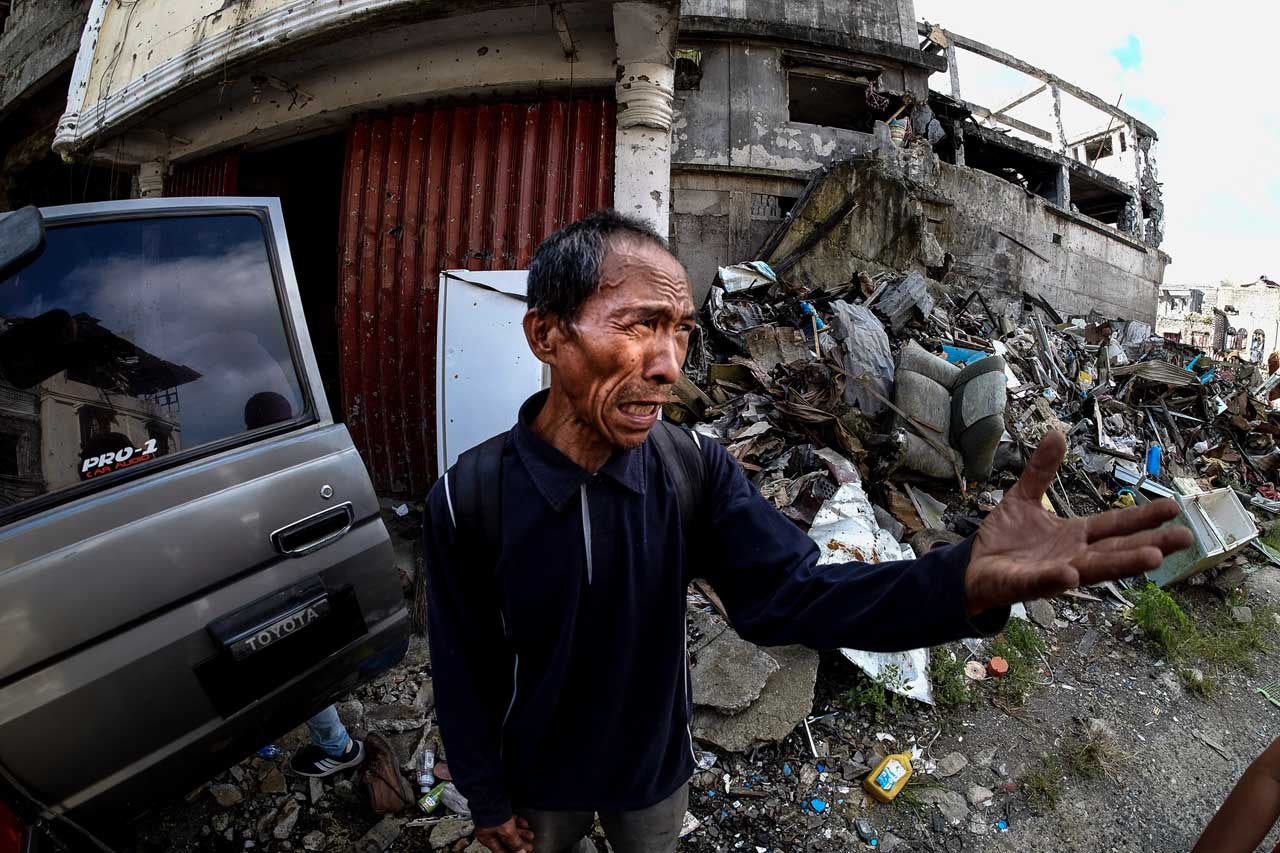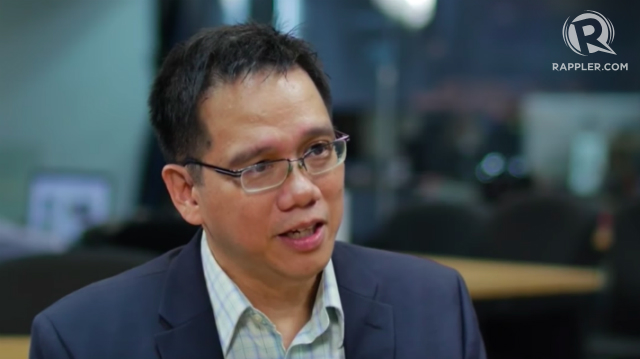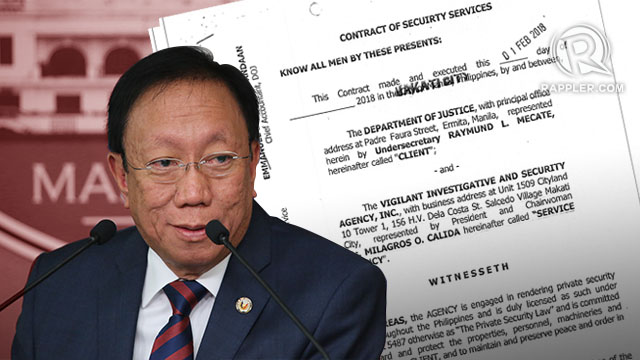MANILA, Philippines – Since formally convening in mid-February, the Consultative Committee formed by President Rodrigo Duterte has been meeting 5 times a week to craft a federal constitution to replace the 1987 Constitution.
Their work is key to Duterte’s promise to turn the Philippines into a federal republic, in the belief that this system will lead to a more equitable distribution of wealth in a country where economic growth is centered on only a few regions. (READ: What you need to know about Charter Change)
This May, the 22-member Con-Com reaches the halfway mark in its work timetable. They were given only 6 months, or until August, to come up with their proposal. Con-Com Chairman Reynato Puno wants to submit the draft charter to Duterte during his 3rd State of the Nation Address on July 23.
The proposal will be submitted to Congress which is set to convene into a Constituent Assembly tasked with proposing revisions to the Constitution. The Con-Ass is not required to adopt any part of the Con-Com's draft charter but Malacañang has said the fact that the committee was created by Duterte should give its recommendations some weight.
What has the Con-Com achieved in its 3rd-month existence?
In a nutshell: The constitution to be proposed is one that creates a presidential-federal government with a Senate and House of Representatives and 3 high courts. The federal republic will likely have 17 federated regions with the National Capital Region as the federal capital. The draft charter introduces environmental and socio-economic rights in the bill of rights and has new provisions regulating political dynasties, banning political butterflies, and requiring that the president and vice president be voted as a tandem. The president, vice president, and lawmakers will serve a 4-year term with the possibility of one reelection.
Rappler compiles key decisions and newly-worded provisions made by the committee. Below is the work of the Con-Com arranged by article in the proposed constitution.
Workflow: The committee goes through the 1987 Constitution line by line. They divided themselves into 12 committees and sub-committees, each assigned to tackle specific portions or articles in the present charter. After discussions by the sub-committees are over, the Con-Com, as a whole, votes on proposed provisions or changes to existing provisions.
PREAMBLE
The Con-Com-finalized preamble emphasizes a federal Philippines that will remain united despite being composed of regions governing themselves. This is to prevent secession by any region.
“We, the sovereign Filipino people, imploring the aid of Almighty God, to build a permanent and indissoluble nation and establish a just, humane, united, and progressive society under a federal government that shall embody our shared ideals and aspirations, promote the common good, conserve and develop our patrimony, and secure to ourselves and our posterity the blessings of independence and democracy under the rule of law and a regime of truth, justice, freedom, love, equality, and peace, do ordain and promulgate this Constitution of the Federal Republic of the Philippines.”
ARTICLE I – Sovereignty Over Territory and Sovereign Rights
The proposed article harmonizes the Philippine constitution with existing international laws on the sea. This firms up, among other things, the Philippine position with regard to the Permanent Court of Arbitration's ruling on the West Philippine Sea.
Section 1. The Philippines has sovereignty over its territory, consisting of the islands and waters encompassed by its archipelagic baselines, its territorial sea, and its airspace.
It has sovereignty over islands and features outside its archipelagic baselines pursuant to the laws of the Federal Republic, the law of nations, and the judgments of competent international courts or tribunals. It likewise has sovereignty over all the other territories belonging to the Philippines by historic right or legal title.
Section 2. The Philippines has sovereign rights over that maritime expanse beyond its territorial sea to the extent reserved to it by international law, as well as over its extended continental shelf including the Philippine (Benham) Rise. Its citizens shall enjoy the right to all resources to which they are entitled by historic rights.
ARTICLES II, IV, V
Changes to Articles on Declaration of Principles and State Policies, Citizenship, Suffrage not yet finalized
ARTICLE III – Bill of Rights
The proposed article will explicitly mention environmental rights of citizens and socio-economic rights to education, health, and decent housing. This means citizens will have a constitutional basis to demand critical services from government. In the current charter, these rights are not in the bill of rights but in the article on state policies.
ARTICLE VI – Legislative Department
There is no final wording yet of this article. But the committee decided to retain the bicameral Congress composed of the Senate and House of Representatives. The number of senators has not yet been finalized as this will depend on the number of federated regions. However, the Con-Com is leaning towards creating 17 regions plus the National Capital Region as the federal capital.
Discussions were heading toward two senators per region, elected per region. Regions will be divided into districts which will then elect one representative each. Voters will also be asked to vote for a party-list group. The composition of the House of Representatives will thus be 60% district representatives and 40% proportional representation. Seats will be reserved for representatives of marginalized sectors – labor, peasants, fishermen, indigenous peoples, and urban poor.
The Con-Com also proposed to require a college degree or its equivalent for senators and representatives. Lawmakers in both chambers are to have 4-year terms and may serve two consecutive terms.
ARTICLE VII – Executive Department
The president and vice president will have 4-year terms, instead of the current 6 years. Both may also serve two consecutive terms, in place of the current system where the president cannot seek reelection.
The Con-Com also wants to require that the president and vice president be voted as a tandem. This means that the running mate of the winning presidential candidate will automatically become vice president. The two must also come from the same political party.
If the post of vice president becomes vacant, the president will choose a vice president from members of the Senate or House of Representatives who belong to his or her party or coalition.
Another change is that the president is required to appoint the vice president to a Cabinet post. In the current system, this is left to the president’s discretion.
A college degree or its equivalent is also required of the president and vice president, under the Con-Com’s proposal.
Midnight appointments: The timeline for the prohibition of midnight appointments is increased to 3 months before the next presidential election (from two months) up to the end of the president's term.
ARTICLE VIII – Judicial Department
There is no final wording yet of this article. But the Con-Com proposes creating 3 high courts– Federal Supreme Court, Federal Constitutional Court, and Federal Administrative Court – with distinct areas of jurisdiction and functions.
The courts will have 9 justices each – one presiding justice and 8 associate justices. While the president still gets to appoint the presiding justices, the judiciary and Congress will be given the power to appoint 3 justices each, per court.
The judiciary will also be given a role in the impeachment process, which in the current Constitution, is left up to Congress.
The Con-Com is proposing that the Federal Constitutional Court serve as impeachment court for impeachment trials of all impeachable officials. The articles of impeachment will be forwarded to the High Court by a joint committee formed by members of the Senate and House of Representatives, after it has evaluated impeachment complaints.
The Con-Com is also leaning toward overhauling the Judicial and Bar Council, the body that creates the short list of candidates for justices from which the president selects an appointee. The JBC will be given a new name and will count the Ombudsman, chiefs of the Commission on Audit and Civil Service Commission, as ex officio members. There will also be a ban on JBC members from reappointment to make them less prone to political influence.
ARTICLE IX – Constitutional Commissions
There is no final wording yet of this article. However, the Con-Com agreed to propose elevating the Commission on Human Rights (CHR) to a constitutional commission.
Under the 1987 Constitution, the CHR is an "independent office" but is not among the 3 constitutional commissions listed in Article IX: Commission on Civil Service, Commission on Elections, and Commission on Audit.
Turning it into a constitutional commission is seen to strengthen the CHR’s investigative powers and make it fiscally autonomous.
POLITICAL REFORMS – Regulation of political dynasties and ban on political turncoatism
Regulation of political dynasties
The Con-Com proposes new provisions meant to embed political reforms in the federal constitution.
The first of this is a regulation on political dynasties. The proposed provisions ban persons related to an official within the second civil degree of consanguinity or affinity from succeeding the official. Relatives within this range are also banned from running simultaneously for more than one national and one regional or local position.
The ban covers children of officials and their spouses, parents, grandparents, brothers, sisters, and their spouses, grandchildren and their spouses, spouse of official, parents-in-law, brothers and sisters-in-law and their spouses, and grandparents of spouse.
It does not cover an official’s uncles, aunts, cousins, nieces, and nephews
Sec.___ The State shall guarantee equal access to opportunities for public service and prohibit political dynasties.
(a) A political dynasty exists when a family whose members are related up to the second degree of consanguinity or affinity whether such relations are legitimate, illegitimate, half or full blood, maintains or is capable of maintaining political control by succession or by simultaneously running for or holding elective positions.
(b) No person related to an incumbent elective official within the second civil degree of consanguinity or affinity, as described above, can run for the same position in the immediately following election.
(c) Persons related within the second civil degree of consanguinity or affinity, as described above, are prohibited from running simultaneously for more than one national and one regional or local position.
(d) Congress may, by law, provide for additional prohibitions.
Ban on political turncoatism
A new proposed provision also punishes political butterflies and parties that accept political butterflies.
A politician is banned from switching political parties within their term of office, within two years after an election, and two years before the next election. Sanctions include loss of their government post, a prohibition from being immediately appointed and from running in the next election.
Parties that accept political turncoats will have their party registration revoked. There are also provisions aiming to strengthen the political party system. Parties are required to submit their list of members, platform, and general program of government to the Commission on Elections and observe democratic processes when nominating candidates for elections and when making party decisions.
Section 3. The State shall ensure the development and strengthening of political parties as mechanisms of citizen representation and democratic governance.
(a) Every political party shall be registered with the Commission on Elections which shall ensure that the political party submit its constitution and by-laws, platform, principles, policies and general program of government a verified list of national officials, members of the executive board, or its equivalent, and the heads of its regional, provincial, and city chapters.
(b) Religious denominations and sects shall not be registered. Parties which seek to achieve their goals through violence or unlawful means, or refuse to uphold and adhere to this Constitution, or which are supported by any foreign government shall likewise be refused registration.
(c) Financial contributions that influence the electoral outcome coming from foreign governments and their agencies, and criminal sources, and given to political parties and their affiliated organizations, political coalitions, or candidates, constitute interference in national affairs, and, when accepted, shall be an additional ground for the cancellation of their registration with the Commission on Elections in addition to other penalties that may be prescribed by law.
Party Candidate Selection and Nomination
Section 4. The State shall promote the development of political parties as democratic public institutions.
(a) Political parties shall be freely established and open to all citizens who share the same party program, adhere to the party constitution, and practice party discipline.
(b) Political parties shall develop a democratic system of internal decision-making and allowing for active citizen participation.
(c) Political parties shall observe fair, honest, and democratic processes in nominating and selecting party officials and candidates for public office.
Political parties shall assist in democratic public education and promotion of democratic values in society.
(d) Political parties shall provide, as far as practicable, for equal representation of women candidates in every election.
(e) The State shall take affirmative action so that marginalized and underrepresented sectors may organize themselves into genuine political parties with articulated platforms of government and capable representatives.
Party-switching Ban
Section 5. The State shall assist in ensuring strong and cohesive political parties.
(a) Any member of a political party elected to public office is prohibited from changing political parties within their term of office.
(b) Any candidate for public office or any official of a political party is prohibited from changing political parties within two years immediately after an election and two years before the succeeding election.
(c) Any political party is prohibited from accepting any of the persons above referred to. Any violation thereof shall be a ground for the cancellation of its registration.
(d) Any change in the membership of any political party arising from a violation of the abovementioned provisions shall be reported to the Commission on Elections.
(e) No political party shall nominate more candidates than the number of persons required to be voted for in an elective position, except for the proportional representative seats in the House of Representatives, nor shall any candidate be allowed to accept nominations from more than one registered political party, except in cases of aggrupations or coalitions thereof.
(d) Candidates to public office who violate these provisions shall lose their position to which they were elected, barred from being immediately appointed to a public office, prohibited from running in the next election and if the party provided funds for their election, reimburse these funds.
More to go
Con-Com spokesman Conrado Generoso said the work of the committee is "70%" complete. The body is yet to finish discussions on 9 more articles in the current Constitution, including the critical transitory provisions.
In June, the Con-Com is also set to visit provinces all over the country to conduct consultations. – Rappler.com
![]()






























